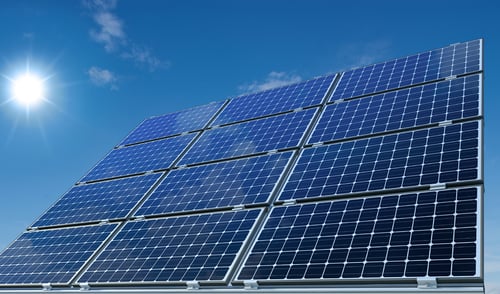 ASTM E3006, Standard Practice for Ultraviolet Conditioning of Photovoltaic Modules or Mini-Modules Using a Fluorescent Ultraviolet (UV) Lamp Apparatus, has been revised with a 2020 publication date. Originally published in 2015, E3006 was written to provide a specific set of methods for performing one of the required tests in the International Electrotechnical Commission (IEC) 61215 and 61730 series of qualification standards. Those documents require an exposure to ultraviolet light, but they only describe the wavelengths and total energy dosage and give no information on how to actually run the test. E3006 covers how to run the tests using the technology described in ASTM G154.
ASTM E3006, Standard Practice for Ultraviolet Conditioning of Photovoltaic Modules or Mini-Modules Using a Fluorescent Ultraviolet (UV) Lamp Apparatus, has been revised with a 2020 publication date. Originally published in 2015, E3006 was written to provide a specific set of methods for performing one of the required tests in the International Electrotechnical Commission (IEC) 61215 and 61730 series of qualification standards. Those documents require an exposure to ultraviolet light, but they only describe the wavelengths and total energy dosage and give no information on how to actually run the test. E3006 covers how to run the tests using the technology described in ASTM G154.
The project to revise the standard was led by Q-Lab Corporation’s Senior Technical Director Sean Fowler, who developed the original edition. Of the original standard, Fowler says, “About 10 years ago, we were receiving a lot of questions from QUV customers about running these qualification tests on mini-modules as well as components. We came up with a couple different test cycles a lab could use to achieve the required UVA and UVB dosages. Members of the ASTM E44.09 committee suggested writing a standard around those, so that’s what we did.”
During the years immediately after E3006 was published, the IEC standards underwent a major reorganization, making it necessary to incorporate new information into E3006. About the revision process, Fowler says, “I took on the project thinking we would add a few lines here and there referencing the new editions of the IEC standards. After the first subcommittee ballot, which passed, E44.09 met in January, 2019 in Houston and came up with quite a few ideas to improve the document. At that point, there were so many changes that I decided to ballot the entire document.”
The new version of E3006 gives specific set points and test durations for running past and current versions of the IEC qualification tests. In addition to incorporating the new editions of the IEC standards, the 2020 edition of E3006 includes more specific information on the required module configuration during the exposure. “The use of fluorescent UV lamps for PV module testing is almost as old as the industry itself. Although it isn’t the only way to achieve the conditions required by the IEC standards, E3006 gives a practical and economical way to do so, and hopefully laboratories around the world will find that it saves them a lot of time and effort,” Fowler says.

